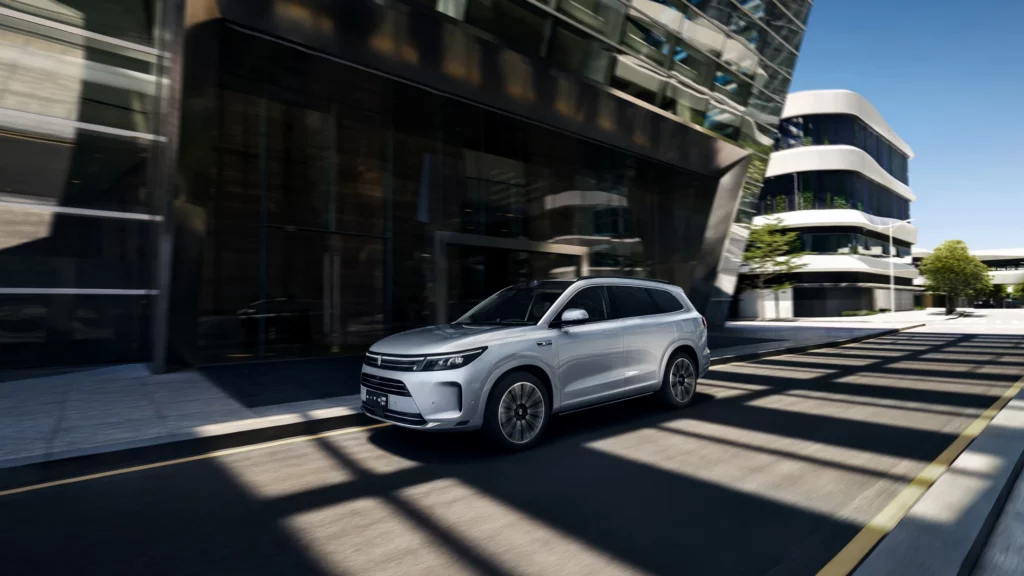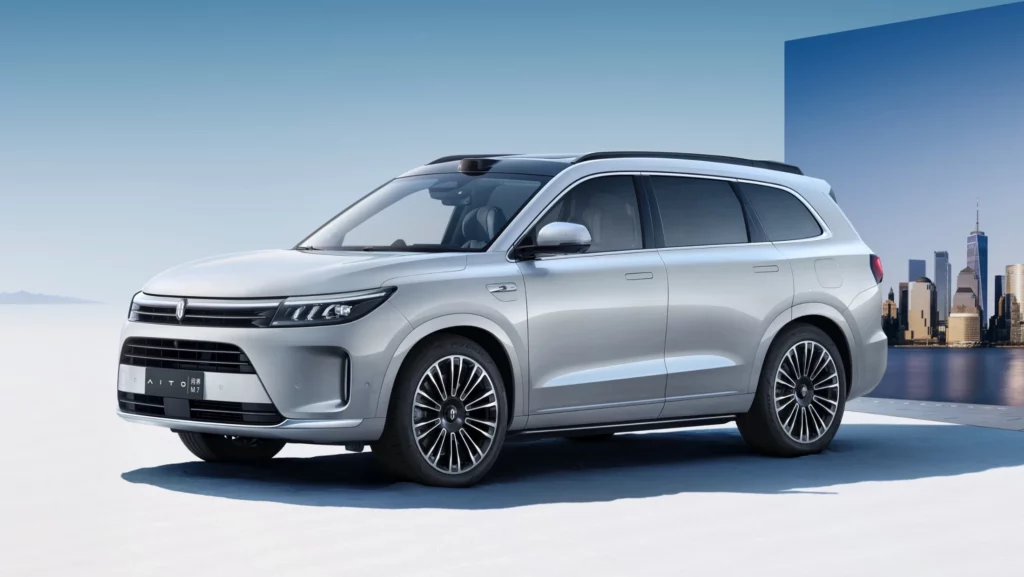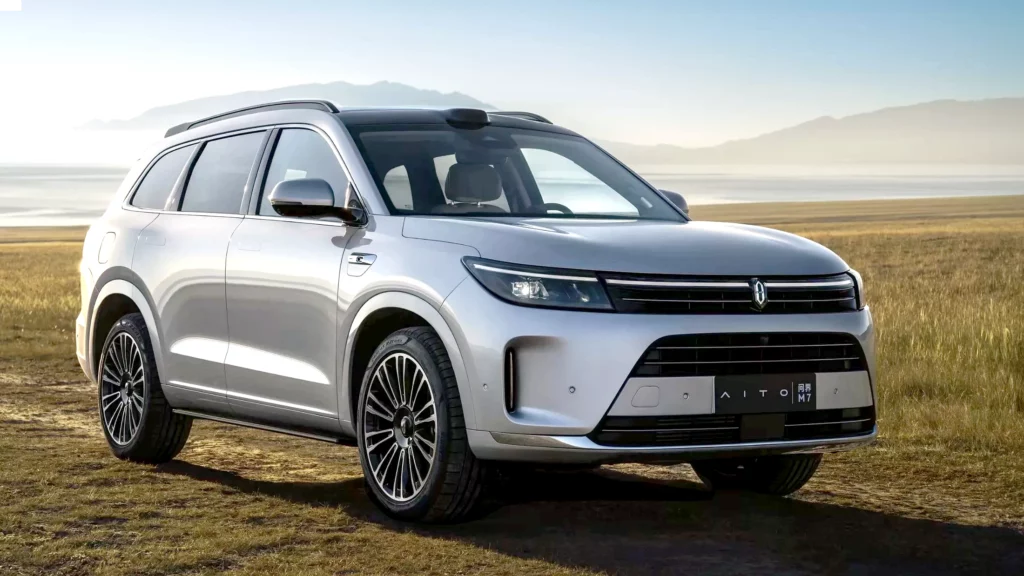- Three people, including a two-year-old child, were killed in a fiery crash in China last week.
- The accident involved an Aito M7 Plus, which was supposed to have an automatic emergency braking system.
- However, both Bosch and Huawei deny having produced the AEB system, leaving consumers with unanswered questions.
A tragic car crash in China that claimed three lives has sparked concerns about potential gaps in accountability within the domestic auto industry. These concerns stem from the influx of tech giants collaborating with established car manufacturers.
The accident occurred on Friday, April 26, when an Aito M7 Plus ran into the back of a slower-moving water truck on a highway in Yungcheng, a city in the north of China. The SUV in question is produced by Aito, a subsidiary of the Seres Group, with technology and marketing help from smartphone giant Huawei, and more traditional suppliers, like Bosch.
Read: 5 Injured After EV Goes AWOL At Chinese Auto Show
In the moments leading up to the accident, the M7 Plus was traveling at 71 mph (115 km/h), and in the aftermath, the vehicle was engulfed in flames, resulting in the deaths of three people, including a two-year-old child, reports Caixin. Unfortunately, many of the details surrounding the crash itself remain unknown, and getting answers has been difficult.
For instance, a family member of the M7 Plus occupants killed in the crash asked why the automatic emergency braking (AEB) system did not work in this instance. In a since-deleted post, Huawei claimed that the car had been fitted with a system developed by Bosch and the SUV was traveling faster than it was designed to work. However, the German supplier denies that it provided the safety system in the M7 Plus.

Some have also alleged that the vehicle’s airbags failed to deploy correctly, a claim that the Aito brand refutes. Meanwhile, the family asserts that the doors did not unlock following the crash, impeding efforts to extricate occupants from the vehicle.
“On April 26, 2024, at approximately 4:34 PM, an Aito M7 Plus was involved in a serious traffic accident in Yuncheng, Shanxi,” Aito said in a statement. “We are deeply saddened by the casualties in the accident and extend our heartfelt condolences to the victims’ families. According to national platform data access management regulations, the vehicle was traveling at a speed of 115 km/h at the time of the accident. The airbags deployed normally, and the power battery pack functioned as expected”.
The incident remains under investigation, and Aito has committed to cooperating with police. “We are actively collaborating with the local traffic police department to investigate the accident, providing all necessary data to determine the cause and offering full support to the families of those involved.” the company stated.
Nevertheless, an unnamed auto industry veteran told Caixin that the Chinese industry needs more transparency about which brands are providing what when collaborations happen. Without it, it could become unclear who to look toward for answers when faults occur, and could allow guilty parties to avoid accountability.





